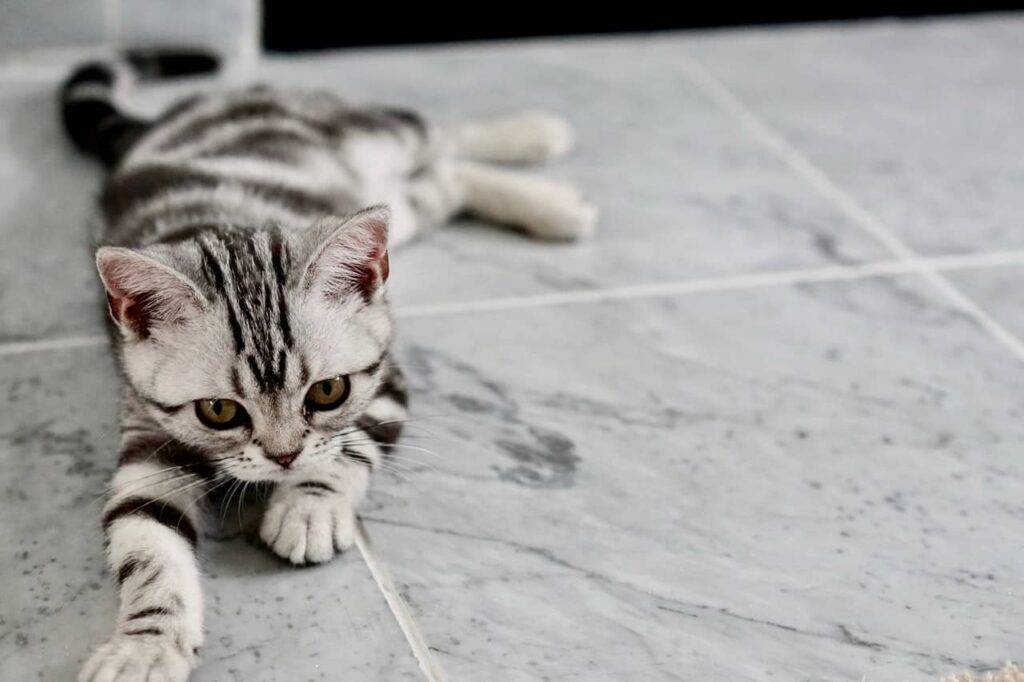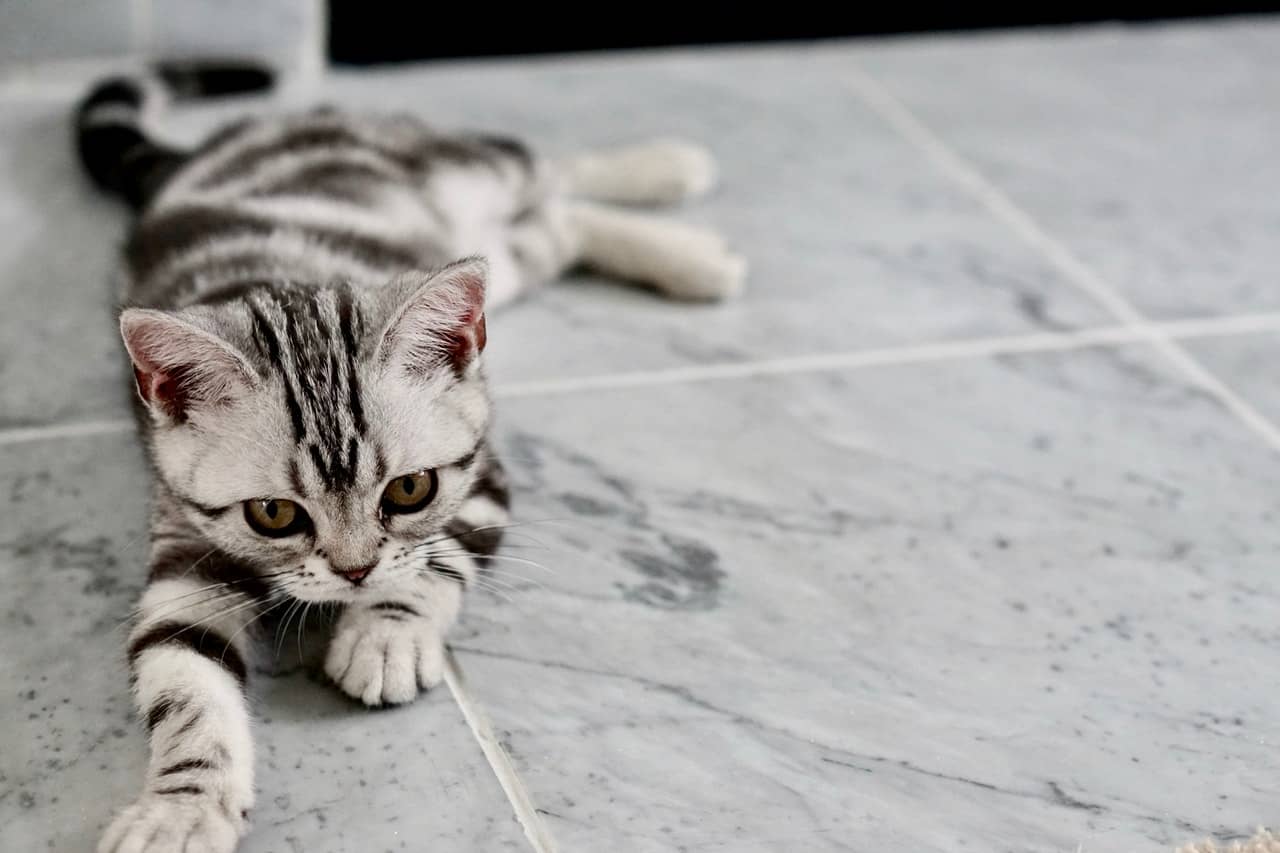Hairballs are unpleasant, period. While we find it disgusting for our pet cats, hairballs can be dangerous so we must pay closer attention to them. The reality is, it’s not uncommon for them to eventually accumulate fur in their insides enough for it to be expelled as hairballs.
Hairballs can be nothing and our cats are more than equipped to expel them on their own. But they can also be quite serious and may cause internal problems like blockages for our cat’s entire digestive system.
As a cat owner, we must be ready if they need our help. Here are a few tips on how to help your cats pass a hairball.

What Causes Hairballs?
The first thing we got to do is to understand how hairballs develop in literally your cat’s internals. Hairballs are a product of your kitty’s grooming habits. Simply put, when your cat grooms themselves, those tiny hook structures found on their tongue gather loose or dead hair and then they swallow them in the process.
But as mentioned, most of the time, cat’s get rid of these swallowed furs through their digestive tract with ease. But some stay inside their belly. That’s the time that they will try and vomit these accumulated furs which have now become hairballs.
Cats who tend to groom themselves more especially those who have longer furs will naturally swallow more of it and they will most likely have more cases of hairballs. This is also especially going to be frequent as your cat gets older.
Now that you know what causes hairballs then it should be easy to understand how we can our cats pass them.
Symptoms if your cat may be suffering from a hairball
How would you then identify if your cat is trying to expel or is suffering from hairball?
Well, if you observe closely you’d probably know right away if your kitty is suffering from a case of hairball. You may see or more appropriately hear them gag as they try to vomit the hairball. Just observe them as usually, they can just get rid of the hairball on their own without your intervention.
But if you notice that the gagging ain’t going away fast then you may want to take action yourself. Consistent or worsening vomiting, retching, gagging, or hacking are all signs that your cat is suffering from a hairball.
In extreme cases, lack of appetite, lethargy, constipation, and diarrhea are telltale signs that your cat needs help. So, now that you’ve identified that your cat is trying to eliminate a hairball then what can you do to help them at home? Or when is it time to call or take them to the vet?
How to help your cats pass hairballs
Olive oil. If you’ve seen your cat struggling with hairballs for a bit of time now, then consider adding olive oil into their diet. This is to try and help them pass the hairball they’ve been dealing with naturally.
Remember, add them to your cat’s food and don’t force it on them. A teaspoon of olive oil should suffice. If you don’t have any olive oil handy then mineral or corn oil should also help. Look into using butter too. You may also treat your cat with canned fish as they have natural oils too.
Petroleum Jelly. Petroleum jelly should help your cat relieve some hairballs on their own. Swipe a few in their paws as they would surely clean it up themselves. As we all know, petroleum jelly is a good lubricant and it would help your cat eliminate the hairball naturally.
Actually, there are hairball remedies that are essentially petroleum jelly with flavor. These remedies are either in paste or gel form. This formulation will help your pet cats with hairballs and they would enjoy it as a treat too.
Pumpkin. Canned pumpkin is also one effective way to help your cats expel obstruction. They are fiber-loaded and have binding qualities that may assist in the passage of hairballs as well as feces. Pure pumpkin is best as it does not have any added sugar.
Fiber diet. We know what fiber does for us as humans. They are quite healthy and they help us – well eliminate wastes effectively. That’s also quite true for our pets especially our cute little kitties.
High-fiber cereals should be ideal, so feed them with it. Just a few tablespoons should suffice. Your cat will be expelling that nasty hairball in no time.
Prevention is key!
One should always keep in mind to pre-empt hairball problems so a few tips and tricks to prevent it won’t hurt your budget nor your time.
Go for hypoallergenic foods. Your vet would know what to recommend and let your cat go on a hypoallergenic diet for about two months. This is especially helpful for younger cats so you may help them pass any hairball easily and you may say goodbye to any digestive issues for your cats.
Moist foods are also quite effective in helping our kitties pass hairballs easily. Let your cat eat some for a few days and they will surely get over any digestive issues.
Groom them properly
Perhaps the best way to help your cats and kittens avoid hairballs is when we help them groom properly. As discussed earlier, cats shedding and grooming themselves are the main causes of hairball development.
So, if we eliminate the chances of them swallowing their fur as much as possible, then the chances of hairballs developing may be reduced or eliminated completely.
Whether your cat is shedding or not, regularly grooming them by brushing them yourself. This process will eliminate loose or dead hair and keep it away from them so they won’t digest it themselves.
Brushing them yourself should also serve as a good bonding time between you two as well as a relaxing session for them that they would surely love eventually. Finish your brushing session with wet or baby wipes so you’re certain you’ll remove as much loose fur as possible.
Fragrance-free and hypoallergenic ones are the best choice.

